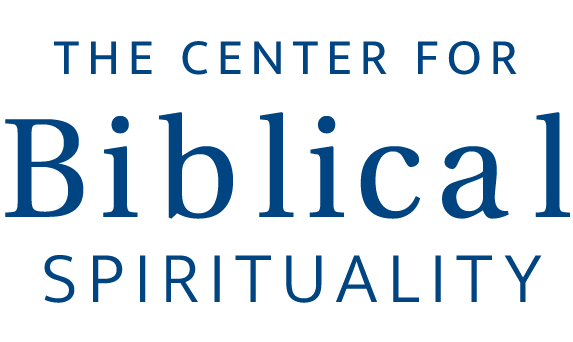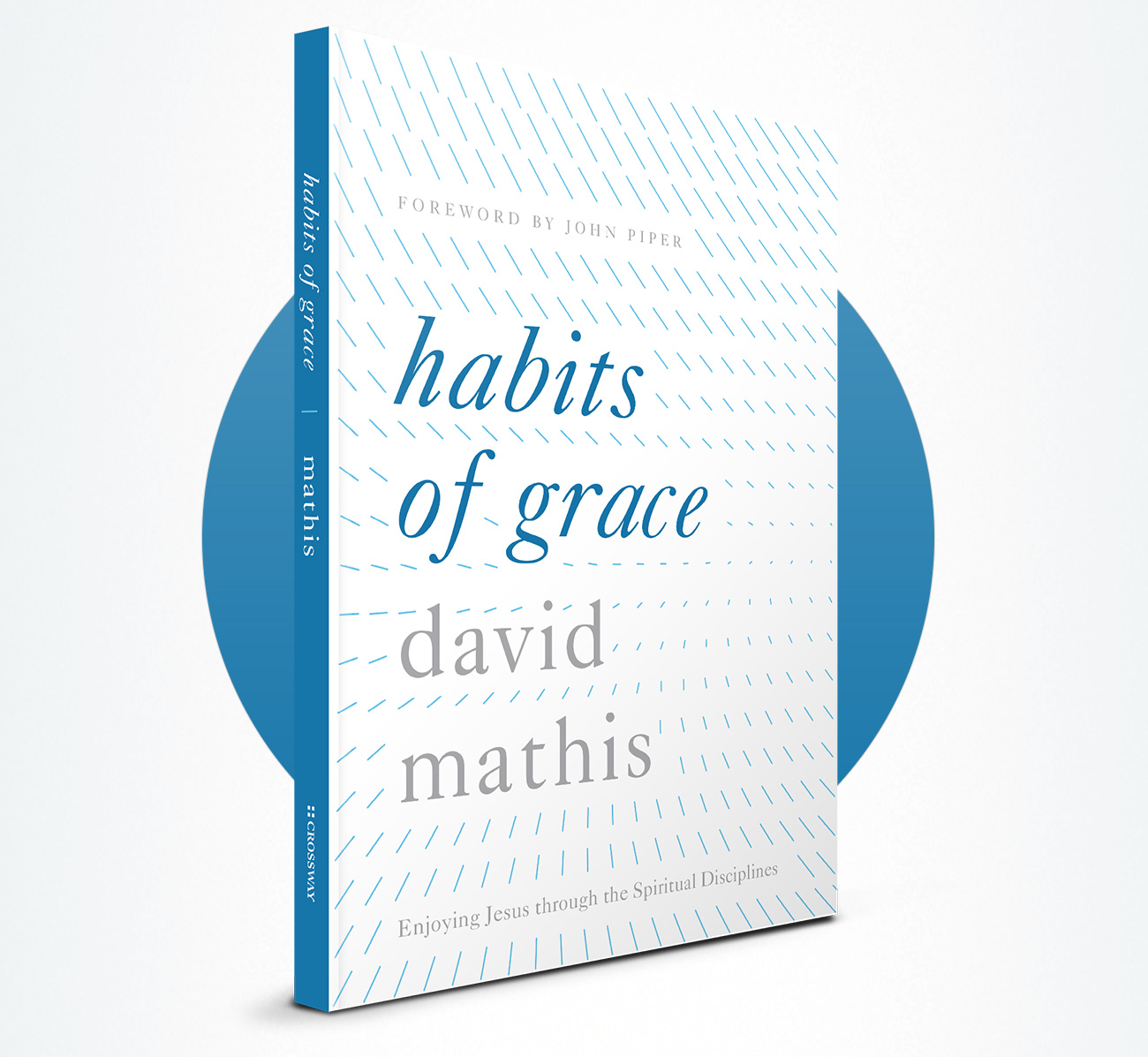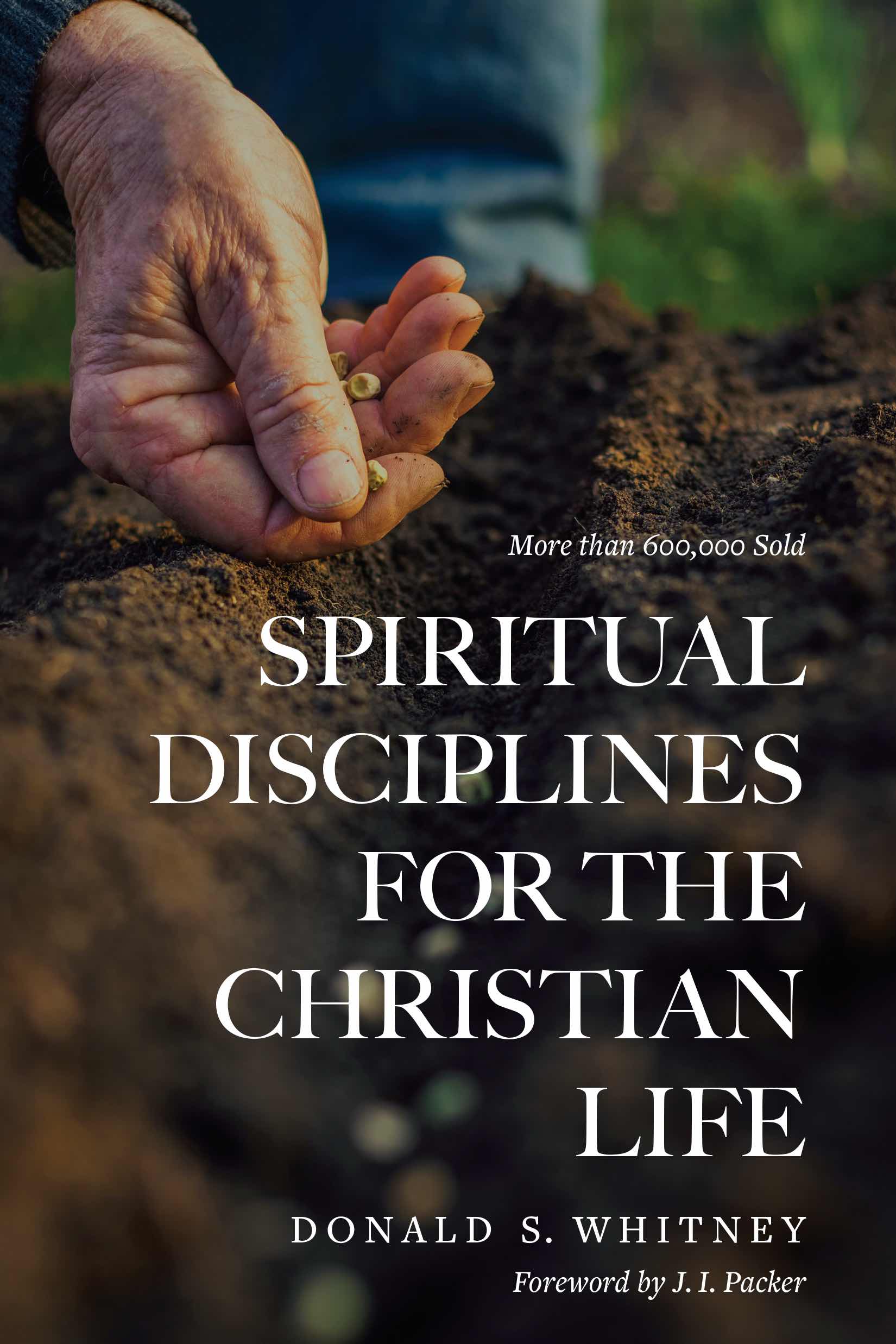Ten Questions for David Mathis about “Habits of Grace,” Part 2
This is the second part of an interview with David Mathis on his book, “Habits of Grace” published by Crossway Books. You can read the first part of this interview here.
The Center for Biblical Spirituality (CFBS): Which habit of grace do most Christians find the most challenging, and why?
David Mathis: Meditation. It is perhaps the most underserved, underappreciated, and potentially most life-changing habit for us to cultivate in our day. By meditation, I don’t mean (like Eastern meditation) try to empty your mind, but (biblically) fill your mind with God’s revelation in his word and seek to apply it to your heart, such that you increasingly feel the significance of his words. Seek to taste the glory of his goodness, communicated through his word, with the taste buds of your heart and soul. Savor the truth about Jesus and his grace. Enjoy it. Enjoy him.
One reason that meditation is so challenging for me, and for so many of us in the modern world, is that it requires that we slow down. It forces us to resist our rapid pace of life. To truly meditate, we must pause and ponder. Which is not easy since we live such fast-paced lives, and so rarely slow down to quite our souls and really ruminate on Scripture.
In particular, I was first awakened to the importance of meditation in studying Spiritual Disciplines for the Christian Life. Don Whitney’s (very good) quotations from the Puritans opened my eyes to an experience of the Bible that seemed so natural to these men, but so largely overlooked in our day.
CFBS: Do you limit your discussion to habits of grace found only in the Bible, and if so, why?
David Mathis: By “habits of grace,” I’m referring to the practices we create and develop to give us regular access to God’s appointed “means of grace” — his word, prayer, and fellowship. So, I do limit my treatment of the “means of grace” — at the level of principle — to only what is found in the Bible. However, in terms of personal “habits,” I want to encourage readers to develop all sorts of timely, creative habits for accessing God’s timeless means of grace. I hope to inspire readers to find fresh ways to use new technology, for instance, for the purpose of hearing God’s voice in his word, having his ear in prayer, and even belonging to his body in community. I’d like to encourage readers to dream up all sorts of new practices in their own lives, not necessarily modeled in the Bible, for accessing God’s timeless means of grace, which are so clearly revealed in the Bible.
Other practices, like journaling and practicing silence and solitude (which are not necessarily enjoined in the Scriptures), are often treated in texts on the disciplines, and so I though they deserved treatment in this book as well.
CFBS: What distinguishes Habits of Grace from other books on the subject?
David Mathis: I’m no expert on all the literature in the field, especially the Catholic and more mainline texts, but here are few bullets of what was especially important to me in crafting this book:
- the simple threefold structure, grouping the various disciplines in light of God’s word, prayer, and fellowship, in an effort to simplify the way we think about accessing God’s timeless “means of grace” through our own habits of life
- an unapologetic celebration of grace and careful emphasis on our Spirit-dependent actions as ways of continuing to receive God’s grace
- encouragement not to feel the burden to “wear Saul’s armor” (to precisely imitate someone else’s disciplines), but develop your own personal habits that are life-giving in your season and circumstances of life
- aggressive foregrounding of joy, and in particular highlighting the enjoyment of the person of Jesus at the center of our motivation for our daily habits
CFBS: What do you think is the most helpful concept in the book, or the most helpful part of the book, and why?
David Mathis: Others will be the best judges of that, but perhaps it’s the simple threefold structure. Having worked with college students for many years (and having been one myself a little over a decade ago), I’ve heard time and again from young Christians carrying a low-grade sense of guilt because they’re not practicing all the spiritual disciplines — and they have a list of disciplines in mind that is a dozen, or fifteen, or twenty items long. I hope that thinking about the disciplines, or means of grace, in this threefold way will be clarifying and empowering for Christians young and old, as it has for me. You don’t need twenty different disciplines daily to be a healthy Christian, but you do need to find your regularly habits of life for hearing his voice, having his ear, and belonging to his body.
 CFBS: What has been the influence of John Piper on your practice of the habits of grace?
CFBS: What has been the influence of John Piper on your practice of the habits of grace?
David Mathis: John has a contagious love for God and his word. You can get that from afar through his preaching and writing, but working closely with him now for more than a decade has made it real in the small moments of life. Like daily habits.
Those who know John, whether from close up or a distance, will be able to tell that his fingerprints are all over this book — just as they are on just about everything I write, how I pastor, and nearly every aspect of life. I’m not sure I can even begin to describe the extent of his influence. But to focus the question on daily habits, my morning approach to the Bible, for one, is deeply shaped by John. I begin with a brief (and earnest) prayer for God’s help, read through a Bible-in-a-year schedule, and while I do so, I’m on the express lookout for a glimpse of God’s goodness in a short passage or verse, or even just a phrase, to linger over and enjoy — call it mediation. Perhaps I try to memorize it as I meditate on it, but I pause there and seek to feed my soul on that ray of light, and then let it propel me into prayer, and into the day.
My little mental arc for moving through a season of morning devotions, or “time alone with Jesus,” is begin with Bible, move to meditation, polish with prayer.
CFBS: Thank you, David. May the Lord greatly bless Habits of Grace.
You can read the first part of this interview here.





